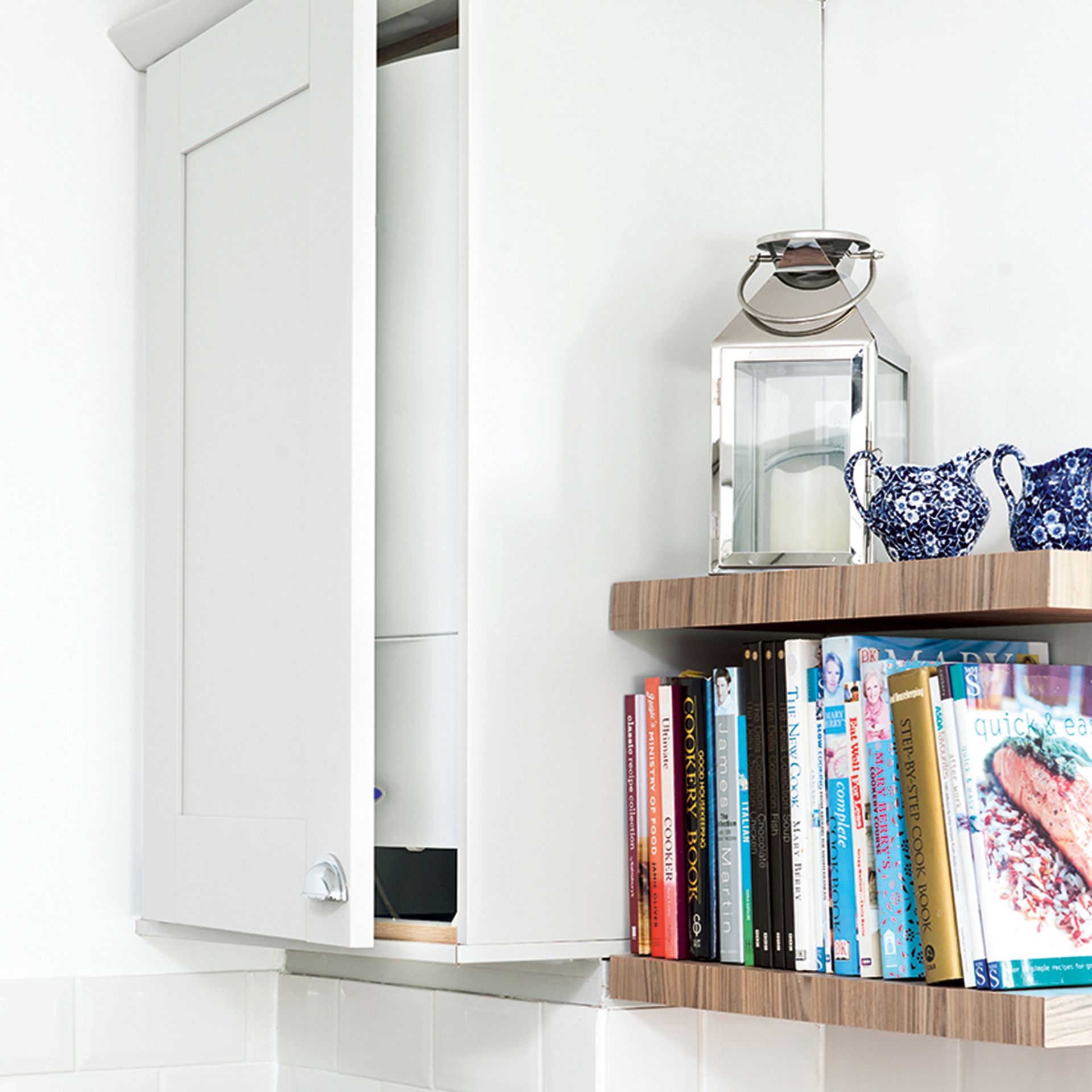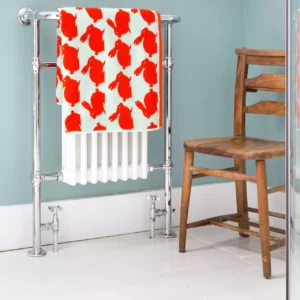How to lower a gas bill – 11 ways you can reduce costs and energy consumption
We outline some simple but practical steps you can take to keep your gas bill down
Spiralling energy prices are leaving many worried about how they’ll get through the colder months. Although it’s certainly not the solution to the cost of living crisis, learning how to lower a gas bill is something we can do.
It pays to understand how to save energy at home, and we can all find ways to make our homes more energy efficient. For example, there are apps that tell you exactly how much gas you’re using and when, and you may even be able to cut costs by simply turning down the water temperature on your boiler.
How to reduce a gas bill
By January 2023, a further 51% rise in the energy price cap is predicted, on top of the 80% increase in October 2022 which took an average annual direct debit energy bill to £3,549. The steps below (which don’t include showering at the gym) will help you save money, and you’ll also be playing a part in reducing the use of fossil fuels and the impacts of climate change.

1. Turn down your water temperature
Ever find the water that comes out of your taps is too hot to touch? Then you’re likely to be wasting gas and money. Try turning the water temperature on your boiler down a few degrees until you reach the optimum temperature.
You should have the option to lower the temperature of the hot water that comes out of your taps and shower heads which, over weeks and months, will help you save energy. If your hot water could be slightly lower, it’s well worth turning the dial down a tad.
(Image credit: Future PLC / Colin Poole)
2. Only turn heating on as and when you need it
 As well as knowing when you should turn your heating off for good, be aware that it’s a myth that you should leave your heating on low all day. Whether you use a timer or manually turn it on, make sure your heating is only on when you need it or you’ll be throwing money away.
As well as knowing when you should turn your heating off for good, be aware that it’s a myth that you should leave your heating on low all day. Whether you use a timer or manually turn it on, make sure your heating is only on when you need it or you’ll be throwing money away.
(Image credit: Future PLC / David Giles)
3. Monitor with an app
Knowledge is power, and apps like Hugo Energy give you a clear display of how you use your gas on a daily basis. We also think having an app on your phone acts as a helpful reminder – seeing it day to day on your phone will keep bills top of mind.
‘The app shows how often your boiler is coming on and if you can reduce the periods it comes on for and the amounts of times it comes on,’ says Ben Dhesi from Hugo Energy. ‘You can, for instance, only have the hot water come on once a day and then make sure you shower at that time of the day.’
4. Move your sofa away from the radiator

Keep warm air circulating by ensuring large pieces of furniture away from radiators. Otherwise, you’ll have to heat your home for longer. ‘Moving your sofa even six inches away from the radiator will allow heat to flow around the room much more effectively,’ comments Holly Herbert from webuyanyhouse.
‘This can save you up to 10% on your bills. The more space between furniture and radiators the better.’
(Image credit: Future PLC / Simon Whitmore)
5. Review your energy bills
Unfortunately, switching energy providers to find a cheaper energy deal is pretty much a thing of the past since OfGem began increasing the energy price cap. However, while savings are likely to be minimal, it’s worth learning the difference between standard variable and fixed rate energy tariffs.
If you’re about to come out of a fixed-rate tariff contract, it could be worth considering how to switch energy suppliers or contacting your current supplier to make sure you’re on the best tariff for your home’s energy usage and comparing it with competitor providers.
6. Make sure your home is well insulated
‘Good insulation is key to making your home more energy efficient,’ says Brian Horne, Senior Insights & Analytics Consultant at Energy Saving Trust(opens in new tab). ‘If you can maximise the thermal performance of your roof, walls, floor, windows and doors, that will give you the best possible foundation for becoming a low-energy household.’

‘When it comes to insulating your house, your roof should be the first place you look to,’ says Andrew Collinge, Heating Product Manager at BestHeating. He says this is because a roof can be responsible for more than 35 per cent of home heat loss. ‘Roof insulation is the cheapest and quickest way to stop heat escaping. And the material used for this purpose can even be installed by keen DIYers,’ he explains.
Around a third of the heat in an insulated home is lost through the walls according to the Energy Saving Trust. ‘Most homes in the UK have either solid walls that can be insulated from the inside or outside, or cavity walls, which have a gap that can be filled with insulation,’ says Brian Horne.
To reduce your gas bill, he advises installing floor insulation too. ‘If you have a newer home, it will most likely have solid concrete floors, onto which you can add a layer of rigid insulation, whereas older homes with suspended timber floors can be insulated by fitting a layer of mineral wool under the floorboards,’ says Brian Horne.
For a quick fix, draught excluder tape, at Amazon, helps stop draughts coming in through windows and gaps between doors, and throwing down an extra rug or two will also help chilly rooms.
(Image credit: Future Plc/Tim Young)
7. Don’t leave appliances on standby
There are lots of appliances that draw power even when they’re on standby. Figures published by British Gas suggest that UK households waste an average of £30 a year powering appliances that they’re not even using. Whereas Energy Saving Trust believes you can save even more.
‘If you make sure that everything is switched off at the wall when you’ve finished with it you could save around £40 a year on your energy bills and 50 kg of CO2,’ says Brian Horne. ‘That’s the equivalent to driving 180 miles from Manchester to Newcastle,’ he says.
‘This sneaky energy usage is known as vampire power,’ says Andrew Collinge. ‘To combat this, you could invest in a standby saver, which is a simple solution to help you navigate the minefield of energy wastage. Plug all your appliances into a standby saver and then programme it to respond to a single remote control. It will also automatically cut the power to an appliance when it realises it has gone into standby mode.’
8. Keep heating systems maintained
Another way to lower your gas bill is a yearly service by a Gas Safe Registered engineer. This will ensure your boiler is working at maximum capacity. During a service, the engineer will check, clean and replace parts and catch any potential problems before the system breaks down.
‘Keeping a system maintained doesn’t just help lower a gas bill, it will keep it both safe and working efficiently,’ says Andrew Collinge. ‘An efficient boiler uses less energy to heat a house, which means regular services can help keep energy costs lower.’
Martyn Bridges, Head of Technical Communication and Product Management at Worcester Bosch agrees: ‘It’s especially important to book in regular boiler services following a summer of infrequent use. Not having your boiler serviced could lead to faults, higher energy bills, and your warranty ending early.’
9. Invest in a smart thermostat
A smart thermostat allows you to operate your heating system remotely via an app on your mobile phone or tablet. Some will save your daily routine and work out the best usage for you, others will alter your settings depending on the weather. ‘Some smart thermostats can also adjust the temperature of your boiler output to make sure it’s always operating at optimum efficiency,’ says Brian Horne.
Sam Jump, Product Manager at Wunda Group even recommends teaming a smart thermostat with smart thermostatic radiator valves so you can remotely control exactly what rooms in your house are heated. ‘When utilised properly, it’s one of the cheapest and most convenient ways to improve energy ratings in your home, cutting heating bills and reducing CO2 emissions,’ says Sam.
10. Replace your old boiler
If your boiler is more than 12-15 years old, is expensive to run and is breaking down regularly, it might be time to consider a replacement boiler. ‘On average, over half of our annual household energy bills come from heating our homes,’ says Victoria Billings, Director of Marketing at Worcester Bosch. That’s why having an efficient and cost-effective heating system is vital, both for lowering your gas bill and for the environment.
‘While a new boiler can be expensive (usually upwards of £1,000), they are a good investment as a newer model will significantly cut your bills,’ says Andrew Collinge. Heating company Vaillant agrees, stating a 30 per cent reduction in bills for homeowners who invest in one of its energy-efficient boilers.
‘Modern boilers are all condensing boilers, which have a large heat exchanger. This means more heat is recovered and cooler gases are sent up the flue, making it more efficient,’ explains Andrew Collinge. ‘To put it into numbers, new A-rated boilers (any boiler over a 90 per cent efficiency) can give you 90p or more worth of heat for every £1 you put in.’
‘In contrast, this is 60-80p for every £1 in older models. Replacing your old boiler also has benefits for the environment. This is because a more efficient boiler will use less fuel to heat your house, reducing your carbon footprint,’ he says.
11. Lower your thermostat
According to Moneysavingexpert.com, for each degree you cut the thermostat you can expect to cut your energy bills by around four per cent. That’s about £65 a year on average for a typical home.
‘The World Health Organisation says that 18 degrees is enough for healthy adults, with slightly higher temperatures needed for the very old or young. So consider popping on a jumper at home and seeing what temperature your household is comfortable at,’ says Will Lynn at Moneysavingexpert.com.
Martyn Bridges agrees: ‘If you’re wondering about the most efficient way to heat your home, it’s best to tailor it to your lifestyle. Of course, due to the government’s current pandemic advice, we are all currently at home for the majority of our day. So think about keeping your home at a comfortable temperature for you and your family, but remember that you can wear layers too to save cash in the long run,’ he says.
If you’re struggling to pay, call your energy company, as there is energy bill help available depending on your situation.












